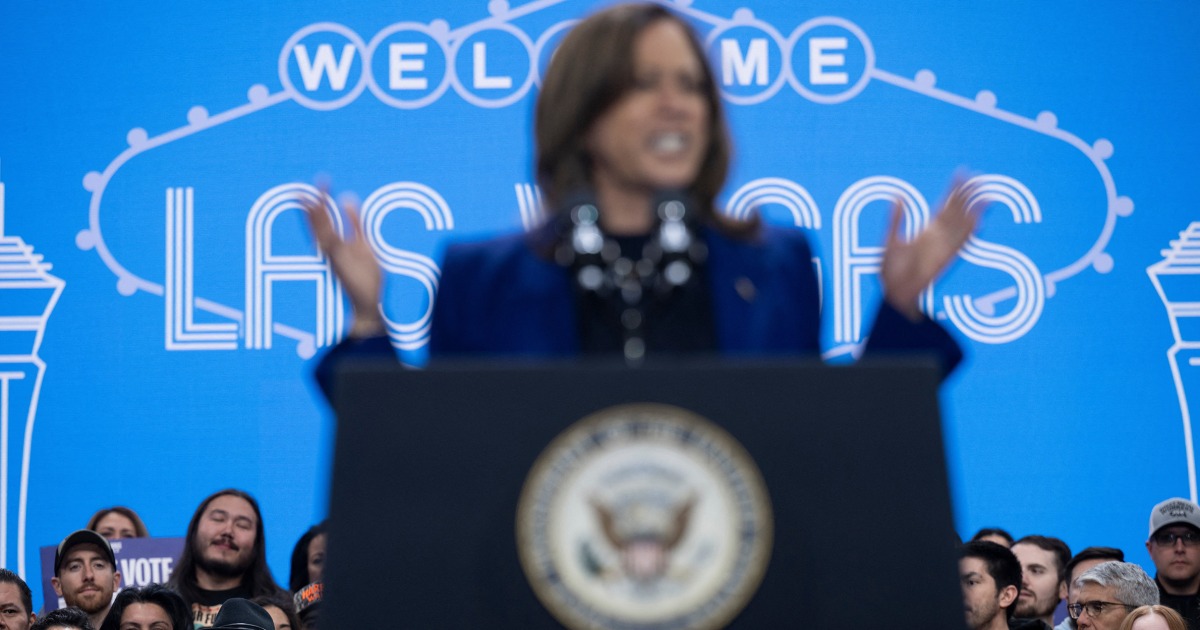
The day after Election Day will be here soon. Rather than speculate on what will happen, let’s think for a moment about what should happen, what could happen — if we want what is best for us and for the country. After all, the future doesn’t happen by itself; it will be what we make it.
The first thing we will have to respond to Wednesday is the likelihood that we won’t know who won the presidential election. All of the polls show us that the country is pretty evenly divided, so barring a surprise, this will be a very close election. And it takes a while to count all the votes — it is, after all, a big country.
So there is no need to panic if a winner has not been announced for a few days. Then there's the matter of a possible discrepancy between the popular vote and the electoral vote. We have a complicated election system.
Our founders designed it with the best of intentions, and people disagree today about whether it should be modified. But on Tuesday, the election will take place within this constitutional structure and the state laws that support that structure, which allows for someone to win the Electoral College without having the most popular votes. Prepare yourself for this possibility; it's happened before.
Scoppe: These two types of people have to coexist, regardless of who's elected president And the core issue: As Mick Jagger has taught us, you can’t always get what you want. Sometimes we believe in a candidate, and he or she just doesn’t win. I know this is frustrating.
It has happened to me many times. As harsh as it sounds, it simply isn’t true that the better candidate always wins. Your candidate may, in fact, be far superior to the one who wins.
And we all have trouble believing that the “other” candidate could actually win. But it happens. Often.
Now comes the challenging part. What do we do if our candidate loses? This will test us. There is an easy response and a hard response.
The easy path is to refuse to accept that your candidate has lost, to take refuge in the belief that the only way this could have happened is if some evil force manipulated the election to keep truth and righteousness from reigning supreme. The easy response is to comfort ourselves with anger and disbelief. Some people take this approach when they are at a sporting event and their team loses.
They would rather believe that foul play or a blown call defeated their team than the far simpler truth: Even good teams lose. The truly hard path is to accept defeat and to wish the winning candidate all the best. But accepting defeat does not mean giving up the fight.
We all have the right to continue to promote the ideas we endorse. We don’t have to stop disagreeing or abandon our political, social, economic or religious beliefs We can run for office. We can organize — the First Amendment gives us the right to “peaceably assemble .
.. to petition the government for a redress of grievances.
” Peaceable assembly is good. Mob violence is not. Scoppe: You could be surprised on Election Day, but not by either of these possibilities But there is another challenge, one we don’t think of often enough.
What do we do if our candidate wins? In some ways, this is even more difficult than coping with defeat. Our regime depends upon winners treating their opponents with respect. If our country is to heal, winners need to reach out to losers and try to find some common ground.
If winners use victory as an excuse to marginalize their opponents, this election will set our country down a dark path. After the Civil War, which turned brother against brother, Abraham Lincoln gave a truly beautiful speech, his Second Inaugural Address . In it, he spoke of the terrible division in the country and the lingering rancor in the nation.
His wise counsel could help us today. He said we should act “with malice toward none” and “with charity for all” as we seek to “bind up the nation’s wounds.” Our country is now — as it was then — deeply divided.
How we respond to this election could be as important as who actually wins. Let us hope that winners and losers work together, as Lincoln would have advised us, to bind up our nation’s wounds. Editorial: Violence has become part of our elections; how much is up to you Solomon D.
Stevens of North Charleston is a retired professor of constitutional law, American government and political theory. He is a regular contributor to The Post and Courier Opinion section. He can be reached at soldenstevens18@outlook.
com.














